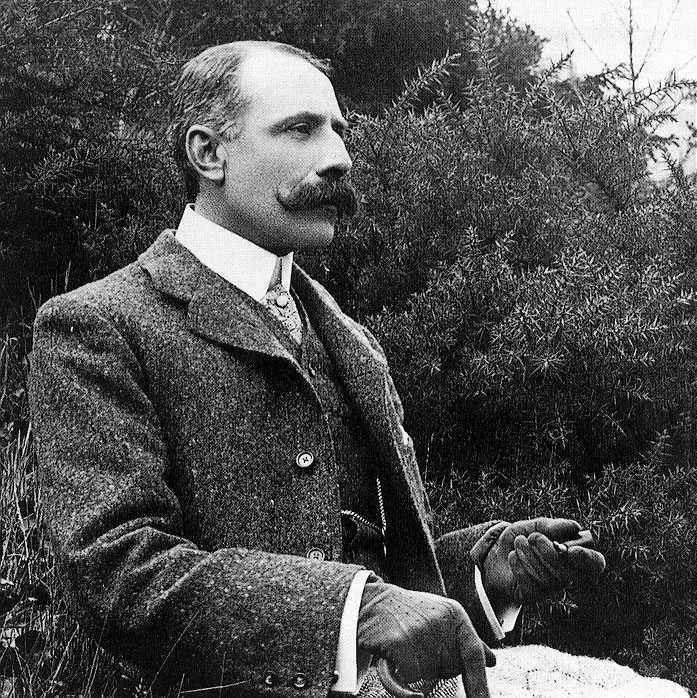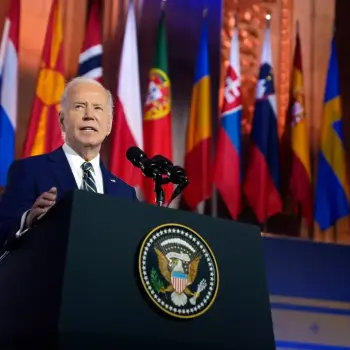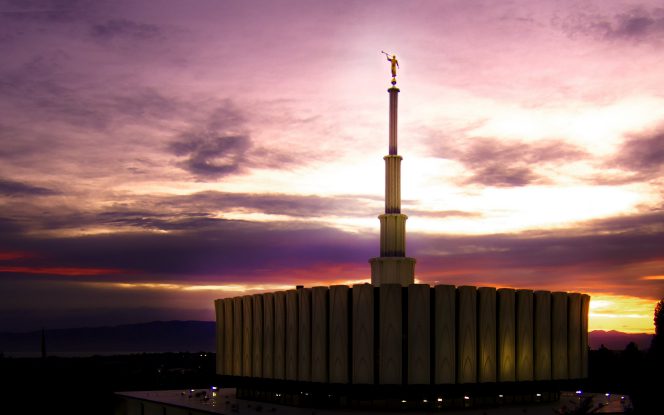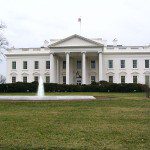
Some of you, and perhaps many of you, may be familiar with the name of Sir Edward Elgar. Even if you’re not, you’ve almost certainly heard his Pomp and Circumstance March No. 1 in D (1901) — especially the part that comes in at about the two-minute mark in this recording. There were several Pomp and Circumstance marches, and the Enigma Variations, and a host of other compositions.
And yet, although he certainly ranks among the greatest of English composers, Sir Edward (1857-1934) was apparently quite shy and deeply modest.
So when, at a point late in the life of Queen Victoria (d. 1901), the monarch invited Elgar to some sort of event at Buckingham Palace, he waited until the last possible moment to respond. And then he declined the invitation, saying that he felt that the distinguished aristocrats gathered at the event would not wish it to be ruined by the presence of a mere piano tuner’s son and his wife.
Perhaps it’s because I’m American and perhaps it’s because we’re living in a distinctly egalitarian age, but I find such a response — at least in the way he expressed it; not necessarily his disinterest in attending some sort of formal royal “cocktail party,” since I don’t enjoy such events either — quite mystifying.
Sir Edward Elgar should not have felt himself outclassed in the presence of a mere bunch of aristocrats who had inherited money and titles from ancestors centuries before — ancestors who, in many cases, were essentially buccaneers, extortionists, and gang leaders. Instead, in my judgment, it was Lord Nondescript, Lady Lacktalent, and Sir Reginald Bland who should have been the people feeling outclassed by a man whose music is still played and admired, who had risen to his stature by dint of talent and hard work. By contrast, they are by and large forgotten, except as dusty entries in Burke’s Peerage. And, in a sense, justly so.
Speaking of “dusty,” I’m reminded of a story out of pre-Islamic Arabia. I know that I’ve told it here before, but I like it and I’m going to tell it again.
One of the great poets of the Arabic tradition is Antarah b. Shaddad, or Antar (AD 525-608). He was the son, it is said, of a Bedouin chieftain and an Ethiopian slave. True, she had been a princess, but now she was a slave, and her son was half black. He didn’t have the status of a freeborn Arab in that society.
There came a time when his father’s tribe was engaged in a fierce battle with a rival tribe, and the rivals were gaining the upper hand. Antarah was standing on a ridge overlooking the fight and, as he had been charged to do, minding the camels of the warriors.
Finally, one of his half brothers made it up the ridge and begged him to join the fight. It has to be understood that the half brothers had long been among those who had mocked Antarah for his half-slave origin. But, of course, now the situation was desperate; they needed his help. “Sorry,” Antarah responded. “I’m a slave and a slave’s son. I’m not worthy to fight alongside you.” “Okay!” came the reply. “You’re free now! Please join us!”
Antarah waded into the fight and, as you might expect, routed the enemy. Eventually, his exploits in battle won him the epithet of “the Bedouin Achilles.”
But the story I’m really after is this one:
Some years later, another Arabian aristocrat, encountering Antarah, mocked him as a person lacking a distinguished lineage. By this time, though, Antarah had achieved renown both as a warrior and as a poet. And his response to the man reproaching him is classic:
“You,” he told him, “represent the end of your noble line. I represent the beginning of mine.”
When the Sadducees and Pharisees came to John the Baptist, secure in the nobility of their descent, he told them “Think not to say within yourselves, We have Abraham to our father: for I say unto you, that God is able of these stones to raise up children unto Abraham” (Matthew 3:9).

I think that this short article, which (as you can easily see) was plainly retrieved from the Christopher Hitchens Memorial “How Religion Poisons Everything” File™, is worthy of particular attention: “Are congregations the key to stemming America’s rising tide of polarization? Dr. Rebecca Glazier argues in a new book that when people and places of faith get involved in their communities, it makes for a stronger society and healthier democracy”
But that certainly doesn’t exhaust the Hitchens File. Not by a long shot! Consider these three chilling accounts, for example:
This Hitchens File item is something that I’m hoping to see: “Sound of Hope: The Story of Possum Trot”
FILM SYNOPSIS:The fight for kids begins July 4. Inspired by the powerful true story, Sound of Hope: The Story of Possum Trot, follows Donna and Reverend Martin as they ignite a fire in the hearts of their rural church to embrace kids in the foster system that nobody else would take. By doing the impossible–adopting 77 children–this East Texas community proved that, with real, determined love, the battle for America’s most vulnerable can be won.
And here’s a 2014 article to which I’m sure I called attention way back then, but which I ran across again yesterday while looking for something else. It’s still worth a look: “The Mormon Advantage: Leaving theology aside, what can we learn from the Mormons?”
And, finally, there is material in this article that is, at a bare minimum, adjacent to the ever-flowing Hitchens File: “New Church buildings spur invitations, celebrations in Nigeria and Ghana: Open house programs allow the community to learn more about the Church in Choba and Jos, Nigeria, and Kumasi, Ghana”
















